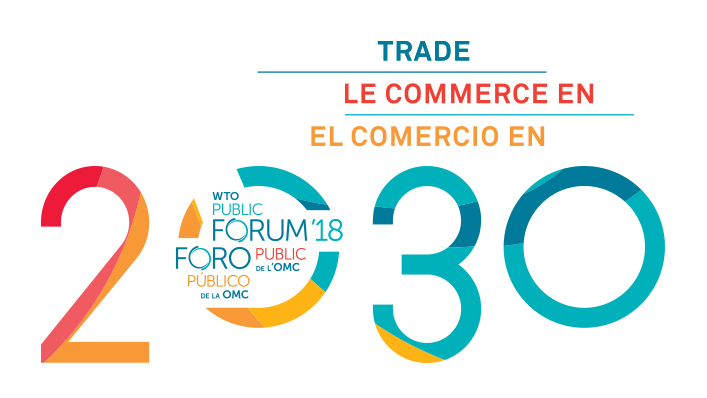The great connector: Digital trade policy as a path to a comprehensive framework for multilateral regulations of trade and socio-economic development
3 Oct 2018 02:00h
Event report
The session was moderated by Mr Alexandre Daniltsev (Head, Trade policy institute (TPI) of Higher School of Economics (HSE)), who started by briefly highlighting the historic journey of international trade between countries. According to Daniltsev, digital trade is a great instrument for regulating trade in services, market access, and co-operation. He stressed that we have access to the digital economy in our homes. He also mentioned the General Agreement on Tariffs and Tariffs (GATT) as a big achievement which took ten years to negotiate. Daniltsev asked how many years of negotiating do we need on digital trade issues? According to him, there is the obstacle of protectionism and the risk of technological development. He gave the example of the trade facilitation agreement (TFA) as a model for fulfilling the obligations of digital trade. He reinforced the role of digital materials. He then went on to ask the two panellists to talk about developping rules for the future economy and the regulation of access to digital trade.
Mr Phil Rourke (Executive Director, Centre for Trade Policy and Law (CTPL), Carleton University/University of Ottawa) started his presentation by explaining the main challenges to digital trade: to promote free Internet, data flow, consumer protection, encryption, cybersecurity, market access, stakeholder engagement, etc.
Rourke said that governments want to know how to tax online transactions, which could cause barriers to digital trade. He gave the example of 3D printing as being important for the future of digital trade. He said that data is essential to 3D printing, and that the impact of 3D printing on economic development is great and affects: business models, employment, increase in competition between the data’s owners, etc. He asked what the chapters on digital trade in the regional trade agreements (RTAs) are? For example, is the United States-Mexico-Canada agreement (USMCA) going to improve to the economy of these countries in digital trade? In addition, he noted the challenge of domestic reforms.
Ms Rosemina Nathoo (Senior Trade Law Advisor, CTPL, Carleton University/University of Ottawa) started by thanking the moderator for the invitation. She highlighted the role of the CTPL in the practical experiences of digital economy. She gave the example of African countries and the Canadian Policy Agenda for the Digital Economy, and the steps they took to tackle the obstacles that came up.
According to her, a key priority is inclusive trade and growth. She mentioned the WTO Director-General support of a comprehensive and inclusive trade agenda in order to improve digital trade.
In addition, Nathoo said that African countries must change the way they are doing trade. Different countries are in different positions to take advantage of digital trade’s opportunities. According to her, migration and the question of identity could be solved by a digital identity. She mentioned that Indian citizens are digitally indetified. She said that nothing is moving forward on the multilateral level and mentioned the importance of enforcing digital trade rules, and the complementarity between the regional and international trading systems. Nathoo remarked that policymakers have to catch-up to technological development. She said that the new rules have to take the positive aspects of the old rules for the progress of the digital economy.
Finally, according to her, digital trade will have an impact on domestic, regional, and international levels. She reinforced the role of digital skills, data flow, and data protection in order to make socio-economic progress.
Mr Bekzada Abilkassymov, joining remotely, started by explaining how the digital economy helps the civil services in his country, Kazakhstan. He said that digital trade has grown in the last five years.
In addition, he mentioned various cybersecurity problems in Kazakhstan, for example, with the digital signature, online payments, etc. He stressed the problem of Internet access in the developing countries. He stressed that there should be a kind of ‘justice’ in the digital trade.
Related event

